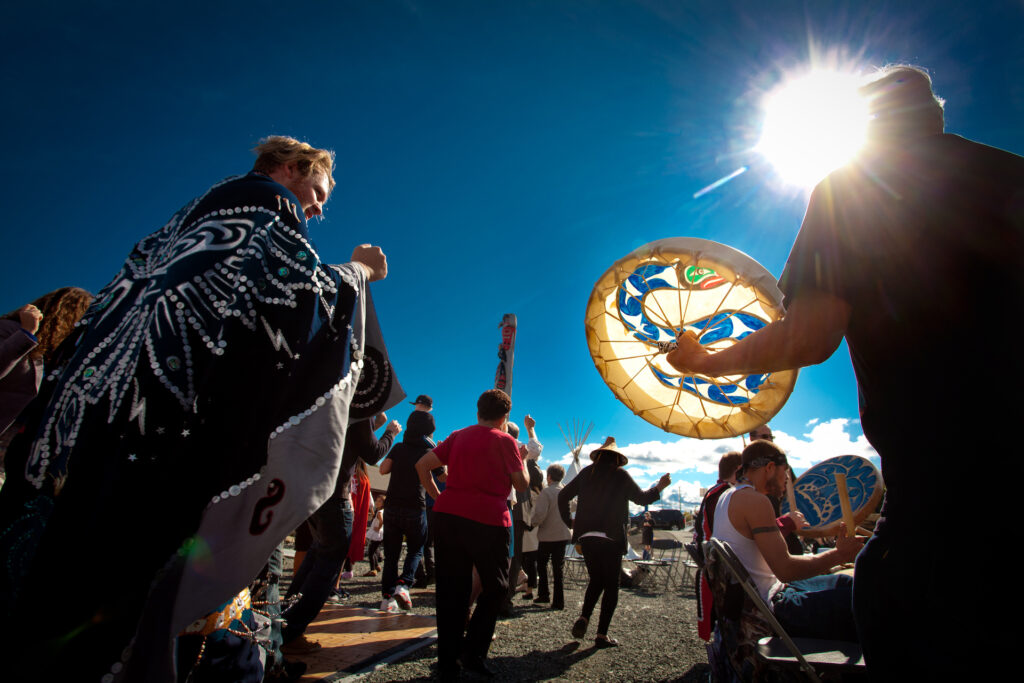In late summer 2020, during the heat of the pandemic, Vancouver Island University (VIU) collaborated with the Ka:’yu:’k’t’h’/Che:k’tles7et’h’ First Nation to deliver a face-to-face iteration of the Aboriginal Construction Foundations Program. Ka:’yu:’k’t’h’/Che:k’tles7et’h’ is a remote community on Kyuquot Sound on northwestern Vancouver Island accessible only by boat or plane. The collaborators in the project, each coming from unique perspectives, worked together to meet students where they were and enable them to access and have healthy journeys throughout the program. Of the eight students who enrolled in the program, seven graduated. A smokehouse now stands as a legacy of the students’ and collaborators’ time together, a result of co-creation with good relations.
Post by BCcampus Research Fellow Heather Burke, Vancouver Island University
My name is Heather Burke, and I am Métis. My Indigenous roots stem from the former Red River Settlement in Manitoba. On my mother’s side I am American and English, and on my father’s side I have mixed Indigenous and European ancestry. Much of my Indigenous ancestry has been erased by colonization, but I introduce myself here because I feel it situates me in the relational context I work in and also makes transparent my positionality as I engage in the research. This research project is a collaborative effort between Ka:’yu:’k’t’h’/Che:k’tles7et’h’ citizens and members of the VIU Trades faculty and seeks to articulate the impacts of relationships created while removing barriers to students’ learning journeys.

My own relationship with the students and community began when I had the pleasure of meeting them as part of my work as a learning facilitator in the Office of Indigenous Education and Engagement at VIU. It was noticeable the student support team was fully invested in the students, and the students were similarly invested in their own learning. Some students even took on construction projects in their free time with their families, resulting in garden boxes and fixed fences in the community. It was clear the good relations between the student support team members set the tone for the students’ engagement with each other and with their studies. The students’ enthusiasm for the work they were doing was contagious, and I couldn’t shake what we often refer to in the office as the magic of community-based deliveries.
When I had the opportunity to become a BCcampus Research Fellow, I became curious to explore the good relations created during the delivery in my project, Teaching and Learning: Co-creation with Good Relations, which seeks to understand how relations between collaborators contribute to students not only completing but also thriving in their program. The significance to the post-secondary sector of this work is in understanding how community-based education benefits student engagement with a particular lens on trades education. Indigenous students often struggle to see themselves reflected in centralized post-secondary environments. I hope this research can identify how community-based programs enact enduring decolonization principles and practices through relationships that enable students to feel grounded and balanced as they study.
This research is supported by the BCcampus Research Fellows Program, which provides B.C. post-secondary educators and students with funding to conduct small-scale research on teaching and learning as well as to explore evidence-based teaching practices that focus on student success and learning.
Learn more:
© 2021 Heather Burke released under a CC BY license
The featured image for this post (viewable in the BCcampus News section at the bottom of our homepage) is by cottonbro from Pexels
